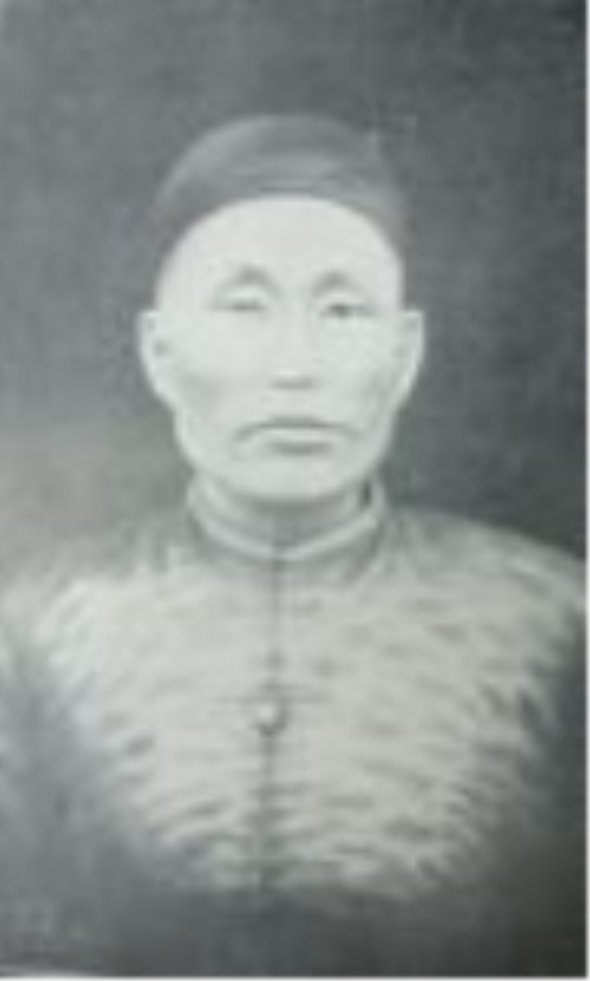Kōchi Chōjō on:
[Wikipedia]
[Google]
[Amazon]
 was a Ryukyuan aristocrat known for leading a movement to petition the government of
was a Ryukyuan aristocrat known for leading a movement to petition the government of
Ryukyu Shimpo
1 March 2003. Accessed 17 September 2009. Together, they submitted numerous petitions to the Qing officials asking for help on behalf of the kingdom. Though there was little, if any, positive response for a long time, Chōjō and others refused to give up. He died in
 was a Ryukyuan aristocrat known for leading a movement to petition the government of
was a Ryukyuan aristocrat known for leading a movement to petition the government of Qing Dynasty
The Qing dynasty ( ), officially the Great Qing,, was a Manchu-led imperial dynasty of China and the last orthodox dynasty in Chinese history. It emerged from the Later Jin dynasty founded by the Jianzhou Jurchens, a Tungusic-speak ...
China
China, officially the People's Republic of China (PRC), is a country in East Asia. It is the world's most populous country, with a population exceeding 1.4 billion, slightly ahead of India. China spans the equivalent of five time zones and ...
to rescue the Ryūkyū Kingdom
The Ryukyu Kingdom, Middle Chinese: , , Classical Chinese: (), Historical English language, English names: ''Lew Chew'', ''Lewchew'', ''Luchu'', and ''Loochoo'', Historical French name: ''Liou-tchou'', Historical Dutch name: ''Lioe-kioe'' wa ...
from annexation by Imperial Japan
The also known as the Japanese Empire or Imperial Japan, was a historical nation-state and great power that existed from the Meiji Restoration in 1868 until the enactment of the post-World War II 1947 constitution and subsequent forma ...
, following the 1872 announcement by the government of Meiji Japan
The was the government that was formed by politicians of the Satsuma Domain and Chōshū Domain in the 1860s. The Meiji government was the early government of the Empire of Japan.
Politicians of the Meiji government were known as the Meiji oli ...
to do so.
It was typical at this time for Ryukyuan aristocrats to have multiple names. Chōjō held the title of ''ueekata ,The same kanji (親方) are pronounced ''oyakata'' in Japanese, in which the term is used in a variety of contexts with meanings roughly corresponding to "master." For example, in sumo, the term is used to refer to coaches. in the Okinawan languag ...
'' of the domain of Kōchi, and was thus known as "Kōchi ueekata". He was also known as .
Life
Details of his early life are unknown. In 1876, however, Chōjō left for China from Unten Harbor on theMotobu Peninsula
The is a peninsula in the Yanbaru region of Okinawa Island. It is surrounded by Nago Bay to the east, the Haneda Inland Sea to the north, and the East China Sea to the west.Okinawa Island Guide " Nago City / Motobu Town / Nakijin VillageOkina ...
, in the north of Okinawa Island
is the largest of the Okinawa Islands and the Ryukyu (''Nansei'') Islands of Japan in the Kyushu region. It is the smallest and least populated of the five main islands of Japan. The island is approximately long, an average wide, and has an ...
, claiming he was simply crossing over to nearby Iejima
, previously romanized in English as Ie Shima, is an island in Okinawa Prefecture, Japan
Japan ( ja, 日本, or , and formally , ''Nihonkoku'') is an island country in East Asia. It is situated in the northwest Pacific Ocean, and is ...
."Kōchi Chōjō." ''Okinawa rekishi jinmei jiten'' (沖縄歴史人名事典, "Encyclopedia of People of Okinawan History"). Naha: Okinawa Bunka-sha, 1996. p 28. Arriving in China, he adopted Chinese (Manchu) hairstyle and dress and, with the Ryūkyū-kan
were institutions serving as homes and bases of operations for Ryukyuan missions to Imperial China, Ryukyuan missions in early modern Fuzhou (Fujian province, China) and Kagoshima, Kagoshima, Kagoshima (Satsuma Domain, Japan).
Fuzhou
The Chines ...
in Fuzhou
Fuzhou (; , Fuzhounese: Hokchew, ''Hók-ciŭ''), alternately romanized as Foochow, is the capital and one of the largest cities in Fujian province, China. Along with the many counties of Ningde, those of Fuzhou are considered to constitute t ...
as his base, he began traveling to various parts, seeking support for his cause: to convince the Qing government to aid Ryūkyū in remaining independent from Japan.
Chōjō gathered other Ryukyuans who, like himself, had fled for China, including Rin Seikō (林世功) and Sai Taitei (蔡大鼎)."Kōchi Chōjō." ''Okinawa konpakuto jiten'' (沖縄コンパクト事典, "Okinawa Compact Encyclopedia")Ryukyu Shimpo
1 March 2003. Accessed 17 September 2009. Together, they submitted numerous petitions to the Qing officials asking for help on behalf of the kingdom. Though there was little, if any, positive response for a long time, Chōjō and others refused to give up. He died in
Fukien Province
Fujian (; alternately romanized as Fukien or Hokkien) is a province on the southeastern coast of China. Fujian is bordered by Zhejiang to the north, Jiangxi to the west, Guangdong to the south, and the Taiwan Strait to the east. Its capi ...
.
References